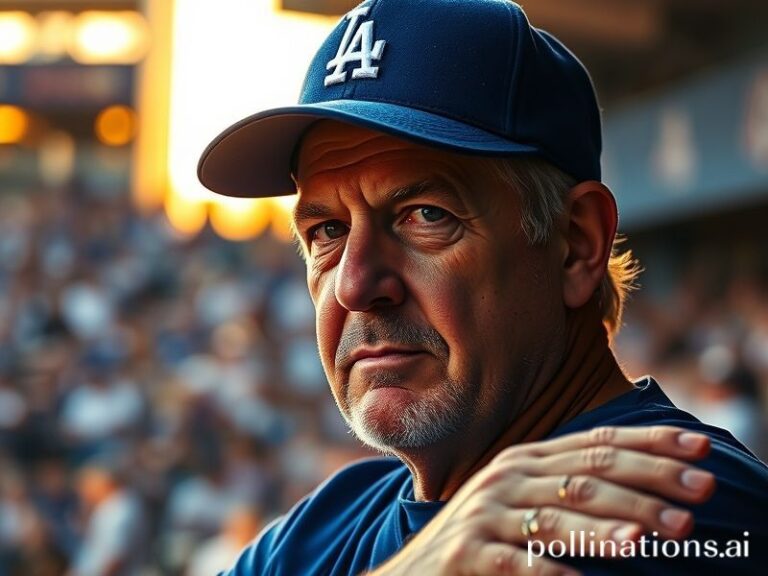Tamron Hall’s Global Therapy Sessions: How America’s Daytime Trauma Became the World’s Comfort Food
**Tamron Hall: America’s Daytime Therapist Goes Global**
While the world burns through its usual cocktail of geopolitical chaos and existential dread, an unlikely export has emerged from the American television industrial complex: Tamron Hall, the former NBC correspondent turned daytime talk show host who’s managed to convince millions that their problems can be solved in 42-minute segments between commercial breaks.
Hall’s syndicated program, now beamed into international markets from Australia to Zambia, represents perhaps the most American export of all—not weapons, not democracy, but the peculiar belief that personal trauma makes for quality entertainment. It’s comfort food for the global psyche, served with a side of corporate sponsorship and the implicit promise that everything will work out just fine, preferably before the next station break.
The show’s international rollout coincides beautifully with what experts call “the great global unraveling”—a period where traditional social safety nets have been replaced by televised group therapy. From Brexit-scarred Britain to climate-ravaged island nations, viewers tune in to watch ordinary people share their extraordinary pain, all under Hall’s empathetic gaze and the unshakable optimism that defines American daytime television.
What makes this particularly fascinating from a global perspective is how Hall’s brand of therapeutic journalism has become America’s soft power response to actual journalism’s demise. While BBC World Service struggles with budget cuts and Al Jazeera faces geopolitical pressure, Hall’s show sails smoothly across borders, carrying with it the distinctly American belief that every problem deserves a hug and possibly a book deal.
The international audience reception has been predictably human. In countries where discussing mental health remains taboo, Hall’s open conversations about trauma, addiction, and abuse have sparked necessary dialogues—though one wonders if the commodification of healing represents progress or just another form of colonial export. Nothing says “American cultural hegemony” quite like exporting our therapy culture alongside our fast food.
From Johannesburg to Jakarta, local broadcasters have discovered that Hall’s blend of empathy and entertainment translates across cultures, though regional adaptations have proven necessary. The German version reportedly features 37% more crying, while the Japanese iteration includes animated segments explaining complex emotions through cartoon characters—because nothing says “emotional authenticity” like a crying Pikachu surrogate.
The show’s global success speaks to a universal truth: we’re all magnificently screwed up, and we’ll watch others work through their issues as a form of proxy therapy. It’s cheaper than actual counseling, more socially acceptable than day drinking, and significantly more entertaining than staring at the ceiling wondering how we ended up here.
Hall herself has become an accidental ambassador for American emotional intelligence, that peculiar national trait where we feel everything deeply but understand nothing completely. Her ability to maintain composure while guests recount horrific trauma has become a masterclass in professional empathy—a skill increasingly valuable in our interconnected world where everyone’s pain is simultaneously the most important thing and completely irrelevant.
As international markets increasingly embrace this format, we’re witnessing the globalization of the American coping mechanism: process publicly, heal quickly, and move on to the next crisis. It’s democracy applied to dysfunction, capitalism applied to catharsis, and entertainment applied to existence itself.
Whether this represents the best or worst of American cultural influence remains debatable. But as the world grows more connected and more fractured simultaneously, perhaps there’s something almost touching about millions of strangers across continents, united in their shared appreciation for watching other people cry on television while pretending it’s making them better people.
After all, in an era where actual solutions seem increasingly elusive, manufactured empathy might be the most honest thing we have left to export.







